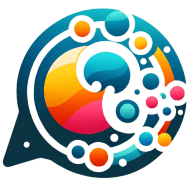9 Examples of Empathy in Customer Relations
Empathy in customer relations can transform ordinary interactions into extraordinary experiences. This article explores diverse real-world examples, showcasing how businesses across various industries leverage emotional intelligence to build lasting connections. Drawing from insights provided by field experts, readers will discover practical strategies to enhance their own customer relationship approach.
- Therapist Connects Through Presence and Validation
- Vacation Saved by Listening and Swift Action
- Gardener Restores Memories Through Empathetic Care
- Coffee Roaster Tailors Experience to Customer Needs
- Online School Builds Emotional Safety Infrastructure
- 3PL Matcher Creates Partnerships Through Understanding
- Agency Transforms Crisis into Loyal Partnership
- Land Seller Aligns Dreams with Flexible Financing
- Event Organizer Accommodates Players' Unique Situations
Therapist Connects Through Presence and Validation
As a therapist, empathy is at the very heart of how I connect with people, not just in a clinical setting, but in every interaction, including customer relations. To me, empathy means being present with someone's experience, even when it's uncomfortable or hard to hear. It's about letting people know, through both words and energy, "I see you, I hear you, and I care about what you're going through."
There are so many ways to show empathy. Sometimes it's about saying something simple like, "That sounds really tough" or "I can see why you'd feel that way." Other times, it's just sitting with someone in silence while they process. The key is to hold space without judgment, without trying to fix, and without minimizing their experience.
One moment that stands out for me was a conversation with a frustrated parent who was overwhelmed by their child's behavior. Instead of jumping into advice or solutions, I simply said, "It sounds like you're carrying so much right now. That must be exhausting." I paused. I let that land. They took a deep breath and said, "Thank you. I didn't even realize how much I needed to hear that." That was the turning point - not the strategies that followed, but that moment of being seen.
Empathy isn't about having all the right answers. It's about tuning in to someone else's emotions and making space for their experience. Whether you're a therapist, a customer service rep, or a friend, your presence matters more than any script. The most meaningful connections I've ever witnessed, personal or professional, have happened in those quiet, human moments when someone feels heard, validated, and not alone.
It's not always easy to stay openhearted, especially when we're tired or busy, but empathy reminds us we're all just doing our best to be understood. And that's something worth showing up for, every time.

Vacation Saved by Listening and Swift Action
Empathy saved a mother's vacation — and reminded me why I started RentMexicoCity.com.
In December, I received a frantic email from a woman in Canada. She had just arrived at the airport in Mexico City with two young children, and her Airbnb had canceled. No refund. No plan B. She was standing on the street with her bags in Roma Norte — jet-lagged, cold, and overwhelmed. She wasn't looking for a rental. She was looking for help.
I didn't send her a link. I called her.
After listening to her story, I asked her what she needed most: safety and proximity to a playground for the kids. I pulled a listing from our private, not-yet-released inventory — a place I had been through personally the week before. We got her keys two hours later. She cried on the phone afterward. Not stress tears this time, but tears of relief.
Empathy is not a buzzword to me — it is ingrained in how I built RentMexicoCity.com. I am also a third culture kid. I understand the feeling of not knowing anything about a huge city, with little to no Spanish skills. So, I have infused our customer service not with listings but instead with listening, support, and action.
That one act of empathy? It turned into a 3-month stay, 2 referrals, and a handwritten postcard months later that said, "Thank you for treating us like humans first."
Empathy builds trust — and in this business, trust is everything.
Gardener Restores Memories Through Empathetic Care
Empathy is at the heart of how I work with clients. After more than 15 years in this industry and hundreds of gardens under my belt, I've learned that every job starts with listening. People aren't just hiring me to mow a lawn or trim a hedge; they're trusting me with a space that means something to them. Whether it's a garden that's been in the family for generations or a patch of green they've just moved into, understanding what that space represents to them makes all the difference. My background in horticulture gives me the technical tools, but it's empathy that guides how I apply them to meet each client's individual needs.
One example that really sticks with me involved a client whose husband had recently passed away. Their garden had been his pride and joy, but after he passed, she didn't have the energy to keep it up. She didn't want it overhauled; she wanted it maintained with care and respect, just as he had. I sat down with her, asked about the plants he loved most, and we created a plan to bring them back to life while keeping the original layout. Because of my training and experience, I knew how to revive some of the more delicate plants that had started to decline. The result wasn't just a tidier garden; it was the restoration of something deeply personal. She told me later it felt like having a part of him back. That's the power of empathy combined with skill, and it's something I bring to every job.
Coffee Roaster Tailors Experience to Customer Needs
Empathy means experiencing a customer's circumstances the way I taste-test a new roast curve—slowly, with attention to every subtle note before I speak. Last winter, a subscriber wrote that our Ethiopia Guji suddenly brewed flat; instead of sending a generic apology, I asked for her grinder setting, water source, and brew ratio, then pulled a parallel brew on my cupping bench. I discovered her city had switched to a heavier mineral profile, muting acidity, so I mailed a complimentary water-filter pouch alongside fresh beans roasted one click lighter to coax out the jasmine-peach sparkle she remembered. She emailed back saying the first sip felt like "the sun came up in my mug," and she's since upgraded to our two-bag plan. Equipoise Coffee delivers freshly roasted, small-batch specialty coffee crafted for balance, flavor, and ethical sourcing—giving coffee lovers a smoother, less bitter cup without additives. Our name, "Equipoise," encapsulates that harmony: we meet people where they are, adjust variables with care, and ensure every bag sings in its new home just as it did in our roastery.

Online School Builds Emotional Safety Infrastructure
To me, empathy starts even before the first email or help ticket. At Legacy Online School, we build it into our systems — not just our scripts.
Something we do that surprises people: all new parents get a "Call Us When It's Hard" letter. It's in plain language, from me, and it basically says, "There will be hard days. We've survived those. Call us. We'll get through this together."
That small gesture shifts the relationship from transactional to human. It says: you're not a customer — you're part of something.
Empathy doesn't mean solving all problems simultaneously. Empathy is designing for emotional safety. When customers feel safe to struggle — and that someone will listen without judgment — they stay engaged, even through difficult times.
Emotional intelligence in a digital-first business isn't soft — it's infrastructure.

3PL Matcher Creates Partnerships Through Understanding
Empathy is the cornerstone of every successful relationship in the 3PL matching space. At its core, our business exists because we understand the frustrations and challenges eCommerce companies face when trying to find the right fulfillment partner.
I remember working with a health supplements startup that had been burned by two previous 3PLs. Their founder was understandably skeptical about the entire industry. Instead of immediately pitching our platform, I spent our first two calls just listening - understanding their past challenges, current pain points, and future concerns. That listening created the foundation for trust.
Empathy in our business isn't just emotional intelligence - it's practical intelligence. When a beauty brand came to us after experiencing 12% damaged product rates with their previous 3PL, we didn't just acknowledge their frustration. We demonstrated empathy through action by prioritizing 3PLs with specialized beauty handling experience and conducting extra verification of their damage prevention protocols.
We've built empathy into our matching algorithm itself. While data points like order volume and SKU count are obviously important, we also capture the qualitative aspects of a business's journey - are they focused on growth or stability? Do they prioritize sustainability or pure economics in their supply chain? These "softer" factors often determine whether a partnership truly succeeds.
In our quarterly business reviews with clients, we always start with one simple question: "What keeps you up at night?" The answers guide our support approach far more effectively than any standard satisfaction metric.
The 3PL industry has traditionally been transactional. We're working to make it relational. When you understand your customers' challenges as if they were your own, you create partnerships rather than just transactions.
Agency Transforms Crisis into Loyal Partnership
Empathy is crucial in customer relations. I learned this early on when a client launched a new product, and everything that could go wrong did. Instead of hiding behind the contract or explaining why the delays weren't technically our fault, I jumped on a call and simply listened. They were frustrated, stressed, and under pressure from their own clients. I assured them we'd fix it and laid out a revised plan with tighter support.
That moment transformed our relationship. They went from being on the verge of canceling to becoming one of our longest-standing clients. They later told me that it wasn't the fix that won them over, but rather how we showed up when things got tough. When you lead with empathy, you stop seeing customers as transactions and start seeing them as people. That's what builds real trust and long-term loyalty.

Land Seller Aligns Dreams with Flexible Financing
Empathy starts with listening for the story behind the numbers. When a young couple told us they had been rejected by three banks because a furlough had dented their credit, we paused the sales pitch and asked what owning five acres near Edinburg meant to their growing family. Their eyes lit up talking about weekend gardens and teaching the kids to hunt. That snapshot of their dream guided every next step: our team remapped payment dates around their pay cycles and drove out on a 102-degree afternoon just to walk the property with them and a stroller in tow. Because our financing is entirely in-house—no credit check since 1993—we could say "yes" on the spot and hand them keys two weeks later. Empathy isn't a warm slogan; it's the engine that turns complex land deals into simple, heart-aligned milestones for the families we serve across Edinburg, Robstown, Falfurrias and beyond.

Event Organizer Accommodates Players' Unique Situations
Empathy is absolutely essential when you're organizing live gaming events. At Axion Now Events, we deal with a wide range of players, from competitive Magic fans to people who are just discovering tabletop games for the first time. Understanding how someone is feeling, especially when things don't go exactly to plan, makes all the difference.
There was one event where a player turned up late and was clearly flustered. The tournament had already started, and technically we didn't have to slot them in. But I took a minute to listen, found out they'd traveled a long way and had trouble with transport. We made it work without disrupting the flow for everyone else, and that player stayed to help tidy up at the end. They've been back to almost every event since.
It's not just about rules and logistics. It's about creating a welcoming space where people feel heard. That builds long-term loyalty and just makes the whole experience better for everyone.





